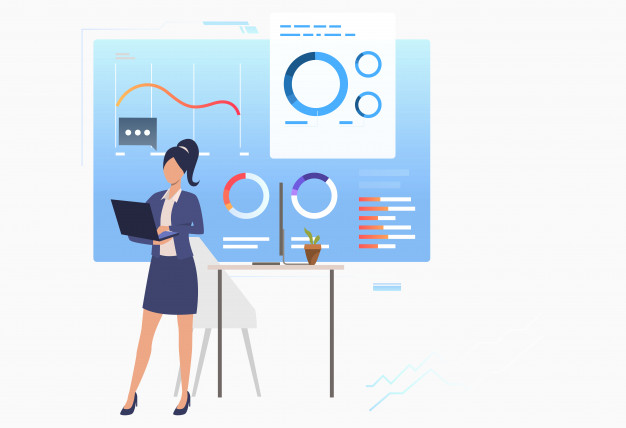A Woman in Investment Banking
An Investment Banking Analyst at a bulge bracket Investment Bank shares her perspective of women in Investment Banking
What brought you to your current job? Did you always want to be an investment Banker?
I had heard about I-Banking straight from the horse’s mouth in a pre-placement talk held by a bulge bracket Investment Bank. The projects in an IB division range from helping a bank raise an ESG bond which would fund women-run SMEs in under- served communities of Tunisia, valuing an off-shore wind farm as Europe pushes for renewable energy, to figuring out the evolution of the music industry over the next decade. Broadly, there are product and industry teams in all major IBs and the activities range from financial advisory to driving value in businesses through M&A and underwriting.
I was fascinated by both finance and the markets and ended up interning for the Investment Bank’s equity research division where we developed investment thesis on a portfolio of stocks based on macro and fundamental analysis. A quest for getting more transactional experience brought me to my current role as an IB analyst with the Investment Bank I’m currently working in.
How different is your role as an Investment Banker from what you may have expected? How has your experience been compared to your expectations going in?
I was pretty well networked before joining the Investment Bank I’m currently working in thanks to my internship and college alumni so I had a fair idea of what to expect.
One’s experience is heavily dependent on the team which is why fit as important as technicals in an IB interview. You might have heard of the airport test wherein the interviewer checks whether being stuck with the interviewee at the airport for a couple of hours would be exciting. You spend anywhere between 60-80 hours with your teammates every week so that’s a fair ask.
As for my experience, it has been tremendous, challenging, and truly international. We had a fairly rigorous and comprehensive training session and campus development program which eased us into work life.
What’s a regular day at your Investment Bank like?
Each day is a different beast but the mornings are the most consistent and methodical, often full of team meetings and sending out a punchy update on the markets to the client and getting their thoughts on the deals. After that, as an analyst, one works on company valuation, creating models, and putting together pitch books. There are often many iterations and nits in the books which need a fix which contribute to the long hours.
What’s the work-life balance like? Do you see IB as a long term career option?
While a career in an IB is intense, there are factors like seasonality, macro-environmental conditions, and the stage of the deal which influence one’s volume of work. It’s common to see people take a week or a fortnight off after each quarter to unwind and travel.
In terms of day to day responsibilities, it’s more important to be crisp, efficient and thoughtful than trying to be the hardest working person out there and burn out. People seldom care about facetime as long as you are equitably pulling your weight; output is much more important.
One shouldn’t take a linear perspective to work-life balance but focus on the most important task for the day, be that working on a live deal, or attending a friend’s wedding. If you pace yourself well, there is no reason why working and having a life have to be mutually exclusive.
Considering Investment Banking is tagged as a ‘Man-Dominated’ field, has being a woman impacted your experience in your career?
Pop culture depicts the perplexing world of finance as a veritable playground for men rife with intense boardroom negotiations and dark suits. In the real world, this is tagged as a pipeline problem where lack of diversity in the viable pool of candidates results in a lack of females in the field. Let’s think of the single most important attribute to succeed in an IB – developing an investing perspective. This entails both numbers and narratives. As Wall Street’s dean of valuation, Aswath Damodaran, says, “Valuation is neither art nor science but a craft, a skill you learn by doing. And the more you do it, the better you get.”
Instead of clogging more of the same pipeline with number crunchers, we need to broaden the pipeline by giving importance to skills like natural intuition, relationship building, and emotional intelligence which are arguably harder to teach.
Even if one jumps through this hoop, we need more female role models to emulate because women have to make different choices than men. I have been very fortunate to have worked with not one but three female managers. No doubt, it’s important to be thick skinned but they are all refreshingly different in their career, working style, and life choices.
Banks have started taking a few steps to hire more females. For example, Goldman says 50% of its entry level staff needs to be female or that they won’t take a company public unless said company has at least one diverse board member. You can hear a similar tune across IBs with initiatives like mentoring and female networking sessions (finding a right mentor for a female is also a difficulty!), returnship programs, and diversity quotas. Find mentors, keep yourself updated of these events, and on a more idealistic note, be the change you wish to see in the world and all that good stuff!
What’s next for you?
The hierarchy in an IB is pretty well defined and work morphs into a different beast as you climbup. Markets have been very challenging off late, providing a great learning experience. Going forward, I am excited to fine tune my financial skills and coach and mentor juniors in the team.
Would you like to give some advice to our young readers?
I recommend trying the internship route to an IB as that’s a bit like dating, it’s not just the firm assessing you, but you trying to understand whether working in an IB is something you want. Do the heavy lifting of networking and polishing your technical skills a little bit before the placement season to get an edge. You need to be on your toes and actively tracking these opportunities because they are limited in number but have historically popped up out of the blue.
In terms of soft skills, know how to hold a good conversation, be humble, a good team player, and focus on thinking like an investor – if you want to do PE/HF later on, this might be your single most important point.
There is an entire gamut of jobs in an IB ranging including core IB, equity research, asset management, and sales and trading. Don’t make IB the be all and end all, try to understand how each of these field is different and what work and lifestyle suits your temperament. Create that optionality for yourself because choosing the wrong career path is a bit like being the rainmaker in the hurricane, you can add much more positive value elsewhere with your skills. As it is said, your career is a marathon, not a sprint.



